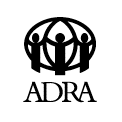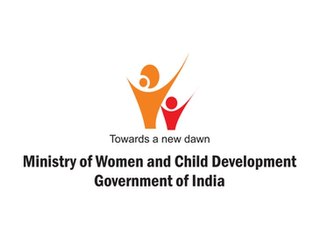
The United Nations Development Programme (UNDP) is a United Nations agency tasked with helping countries eliminate poverty and achieve sustainable economic growth and human development. The UNDP emphasizes developing local capacity towards long-term self-sufficiency and prosperity.

The Adventist Development and Relief Agency International is a humanitarian agency operated by the Seventh-day Adventist Church for the purpose of providing individual and community development and disaster relief. It was founded in 1956, and it is headquartered in Silver Spring, Maryland, United States of America.
The Gabriel Dumont Institute (GDI), formally the Gabriel Dumont Institute of Native Studies and Applied Research Inc., is a non-profit corporation serving the educational and cultural needs of the Saskatchewan Métis and Non-Status Indian community, and is the officially-designated education arm of the Métis Nation—Saskatchewan (MN-S).

The National Democratic Institute (NDI), or National Democratic Institute for International Affairs, is a non-profit American NGO that works with partners in developing countries to increase the effectiveness of democratic institutions. The NDI's core program areas include citizen participation, elections, debates, democratic governance, democracy and technology, political inclusion of marginalized groups, and gender, women and democracy, peace and security, political parties, and youth political participation. The organization's stated mission is to "support and strengthen democratic institutions worldwide through citizen participation, openness and accountability in government."

Cameco Corporation is the world's largest publicly traded uranium company, based in Saskatoon, Saskatchewan, Canada. In 2015, it was the world's second largest uranium producer, accounting for 18% of world production.
Educational evaluation is the evaluation process of characterizing and appraising some aspect/s of an educational process.

Catholic Relief Services (CRS) is the international humanitarian agency of the Catholic community in the United States. Founded in 1943 by the Bishops of the United States, the agency provides assistance

National Bank for Agriculture and Rural Development (NABARD) is an apex regulatory body for overall regulation of regional rural banks and apex cooperative banks in India. It is under the jurisdiction of Ministry of Finance, Government of India. The bank has been entrusted with "matters concerning policy, planning, and operations in the field of credit for agriculture and other economic activities in rural areas in India". NABARD is active in developing and implementing financial inclusion.

The Directorate-General for International Partnerships is the European Commission department responsible for international development policy. It operates under the authority of the European Commissioner for International Partnerships, Jutta Urpilainen.

The Organisation for Economic Co-operation and Development's (OECD) Development Assistance Committee (DAC) is a forum to discuss issues surrounding aid, development and poverty reduction in developing countries. It describes itself as being the "venue and voice" of the world's major donor countries.
SIGNIS (official name: World Catholic Association for Communication) is a Roman Catholic lay ecclesial movement for professionals in the communication media, including press, radio, television, cinema, video, media education, internet, and new technology. It is a non-profit organization with representation from over 100 countries. It was formed in November 2001 by the merger of International Catholic Organization for Cinema and Audiovisual (OCIC) and International Catholic Association for Radio and Television (Unda). At its World Congress in Quebec in 2017, SIGNIS welcomed also former member organisations of the International Catholic Union of the Press (UCIP).

The Asia/Pacific Group on Money Laundering (APG) is a FATF style regional inter-governmental (international) body, the members of which are committed to effectively implementing the international standards against money laundering (AML), the financing of terrorism (CTF) and financing the proliferation of weapons of mass destruction. APG was founded in 1997 in Bangkok, Thailand, and currently consists of 41 member jurisdictions in the Asia-Pacific region and a number of observer jurisdictions and international/regional observer organisations.

The Ministry of Women and Child Development, a branch of the Government of India, is an apex body for formulation and administration of the rules and regulations and laws relating to women and child development in India. The current minister for the Ministry of Women and Child Development is Smriti Irani having held the portfolio since 31 May 2019.
HIV/AIDS in Namibia is a critical public health issue. HIV has been the leading cause of death in Namibia since 1996, but its prevalence has dropped by over 70 percent in the years from 2006 to 2015. While the disease has declined in prevalence, Namibia still has some of the highest rates of HIV of any country in the world. In 2016, 13.8 percent of the adult population between the ages of 15 and 49 are infected with HIV. Namibia had been able to recover slightly from the peak of the AIDS epidemic in 2002. At the heart of the epidemic, AIDS caused the country's live expectancy to decline from 61 years in 1991 to 49 years in 2001. Since then, the life expectancy has rebounded with men living an average of 60 years and women living an average of 69 years

Cape Town TV is a community television channel that broadcasts in Cape Town, South Africa. It launched in September 2008 with a one-year, "temporary" license and thereafter won another such license in September 2009. It is a non-profit organisation that is licensed as a community broadcaster in terms of South Africa's Electronic Communications Act.
Caritas Ticino is a non-profit organisation based in Ticino, Switzerland.
Synergy International Systems, Inc. ("Synergy") is an information technology and consulting company based in Washington, D.C. that provides web-based software to international development agencies, country governments, NGOs and private sector partners. The key products focused on monitoring and evaluation (M&E), national development effectiveness, and aid management, judicial system modernization, social protection, public financial management (PFM), disaster relief and reconstruction, environment, education, and public health. The company maintain a Global Learning Center in Yerevan, Armenia. Its services include software development and customization, IT strategy consulting, systems integration, capacity development and technical support. Synergy has developed management information systems for public and private sector clients in 65 countries.

Irish Aid is the Government of Ireland's official international development aid programme. Irish Aid is managed by the Development Co-Operation and Africa Division (DCAD) of the Department of Foreign Affairs (DFA) . The Irish Government allocated €870 million to official development assistance (ODA) in 2019, mainly focused on overseas aid to reduce poverty and hunger, and to improve education, healthcare and governance in Africa, Asia, the Middle East and Latin America. The Irish Aid programme is an integral part of Ireland's foreign policy.
The European Partnership for Democracy (EPD) is a membership-based network of not-for-profit organisations that describes its aim as "supporting democracy around the world".
Foreign aid for gender equality in Jordan includes programs funded by governments or non-governmental organizations (NGOs) that aim to empower women, close gender based gaps in opportunity and experience, and promote equal access to education, economic empowerment, and political representation in the Hashemite Kingdom of Jordan.











